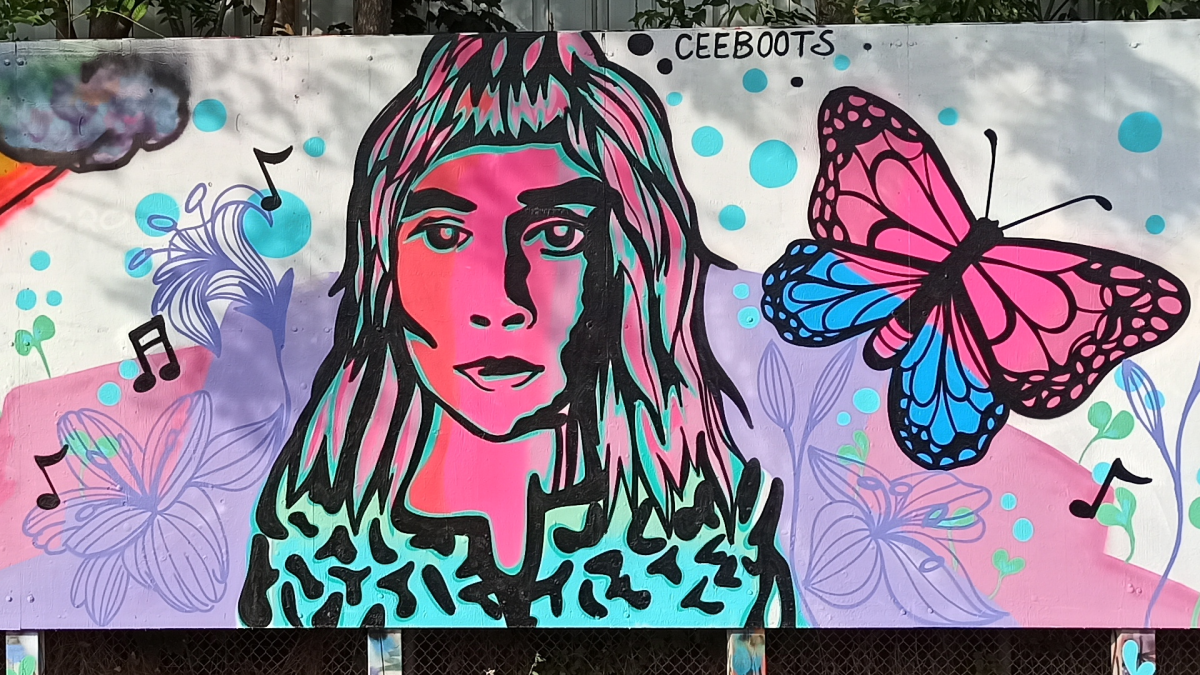The family of Holly Ellsworth-Clark, a Calgary woman who went missing in Hamilton last year and whose body was later found in the city’s harbour, believe the aspiring musician’s death was accidental after reviewing a second autopsy.

In a Facebook post, Dave Clark says a report from Ontario’s chief pathologist revealed, at the time of his daughter’s death, she was not suffering from trauma or any effects from drugs or prescribed medications.
“We believe, now, that her death was most likely an accident brought on by part of an effort to heal herself,” Clark said in the post.
“Holly was not fearless, but was extremely brave and she had recently been known to take part in cold plunges in glacial water.”
Hamilton police concluded their investigation into the disappearance last fall, nine months after the 27-year-old went missing on Jan. 11, 2020 in Central Hamilton.
Ellsworth-Clark’s remains were pulled out of Pier 11 on Sept. 10 after a worker spotted her body floating in the harbour.
Investigators said the body had been in the water for some time and did not believe the death was suspicious in nature.
In a statement on Sunday, Dave Clark suggested Holly may have gotten into the water herself.
“She might have taken a plunge to attempt to clear her tumultuous mind,” said Clark.
The last known sighting of Ellsworth Clark alive was on security camera footage in the late afternoon north of Barton Street the day she went missing.
A budding musician, Ellsworth-Clark moved from Calgary to Toronto in the summer of 2019. A boyfriend and a band were the reason for her trek from Alberta to southern Ontario, according to father Dave Clark.
Ellsworth-Clark then made a move to Central Hamilton in October of 2019 to pursue another opportunity to join a group.
After spending some time in Toronto with siblings over the Christmas break, Holly went back to Hamilton and that’s when the family began to notice a change in her behaviour with a number of emotional phone calls.
Clark said the last time he heard from his daughter was in January, he said she called in a panic, afraid for her life.
“So the conversation we had — she was in quite a state, and panicked. So we weren’t sure if she was rational. But apparently, she was talking about this much earlier and in a rational state to other people,” Clark told Global News in June 2020.
Friends and family organized a number of searches in Central Hamilton neighbourhoods in January and plastered pictures of Ellsworth-Clark on signposts across the city.
The search would expand across Southern Ontario, specifically at shelters where searchers could talk to people who effectively lived on the street.
In his post, Clark thanked all those volunteers who participated in intensive searches over several months across Ontario.
“Across the country and worldwide, we asked thousands of people that we didn’t know for their interest and their help and for the most part it was graciously given,” Clark said.
“If that was you, thank you. This was a huge collective effort.”






Comments